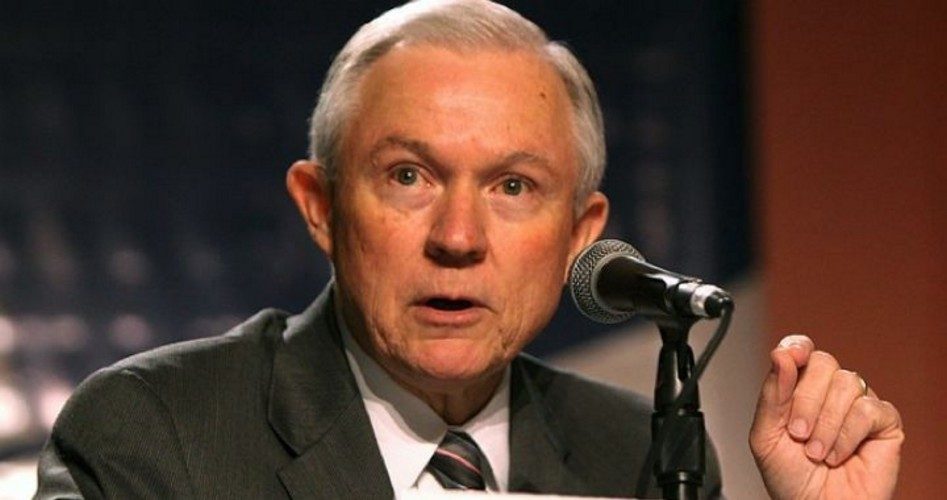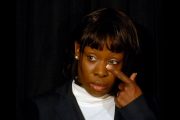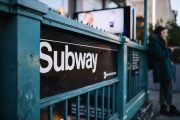
Attorney General Jeff Sessions addressed a gathering of federal, state, and local law-enforcement officials in Richmond, Virginia, on Wednesday morning, announcing a new direction in law enforcement under the Trump administration. He stated: “[President] Trump issued a policy to [his] administration to reduce crime, and that’s what I take as my marching order.”
He decried the jump in violent crime and murders in major cities over the last two years, ending the long steady decline in those numbers nationally over the past several decades:
The number of violent crimes in the first half of last year was more than 5 percent higher than the same period in 2015. The number of murders was also up 5 percent, and aggravated assaults rose as well.
Since 2014, the murder rate has gone up in 27 of our country’s 35 largest cities.
Sessions indirectly referred to the “Ferguson Effect,” which has caused law-enforcement officers to be increasingly “reluctant to get out of their squad cars and do the proactive, up-close police work that builds trust and prevents violent crime.”
The Ferguson Effect is now increasingly being referred to by those officers as the “ACLU Effect” thanks to that group’s mandated installation of new operational guidelines in some large cities’ police departments, said to be designed to eliminate the “impermissible racially disparate impact” of the procedure known as “stop and frisk.”
Pew Research has confirmed the ACLU Effect by noting recently that 72 percent of officers surveyed indicated that they were unwilling to stop and question suspicious people, while 76 of them were reluctant to use force on a suspect even when it would have been appropriate to do so. Predictably, criminals have recognized the void and have filled it with increased criminal activity, knowing that their chances of being interdicted in the process have been greatly reduced, thanks to that ACLU Effect.
In Chicago, the nation’s second largest police department installed new ACLU monitoring requirements in August 2015, and it didn’t take long for the new procedures to result in increased criminal violence. Instead of completing a two-sided, three-by-five-inch contact card following every stop of a potential miscreant, officers now must complete a two-page form containing at least 50 boxes that must be checked off, which include various racial categories, several lines for “narratives” that the officer must complete, including the reason for the stop, whether the suspect was patted down, and “all the reasons that led to the search” if a search was conducted that was “beyond a protective pat down.”
These forms are then collected at the end of each shift and forwarded to a retired judge who will then determine, among other things, whether the stop was “an impermissible racially disparate” stop, or not. If so, then various sanctions would be applied to the offending officer, including personal embarrassment, time off without pay, additional “training” to avoid further errors in judgment, and potentially termination from the department.
The agreement between the Chicago Police Department (CPD) and the ACLU was based upon the latter’s analysis of just 250 “stop and frisks” in 2014, and concluded that, based upon its analysis and reading of current law, half of them violated federal law. It threatened the CPD with a lawsuit, and the department brokered an agreement that was applied effective January 2016.
That month is when Chicago’s now notorious crime wave began.
In January 2016, the number of the contact forms (the new two-page ones) filed by officers dropped by 79 percent, as compared to the previous three-by-five cards, resulting in the city recording 52 murders that same month, making it the “deadliest first month of the year since 2001,” according to the Chicago Sun-Times. Since then the city’s record of mayhem, gun violence, and murder has made front page news almost on a monthly basis, with a record set in 2016 already on the way to being broken by 2017.
One sergeant interviewed by the Chicago Sun-Times attributed the crime wave directly to the ACLU’s mandates that are hamstringing officers’ ability to enforce the law for fear of retribution. He told the Times that his team made dozens of stops in December 2015, but only a handful in January 2016, explaining, “We’re avoiding all the gray areas.”
Following Sessions’ public address in Richmond on Wednesday, he went into a private meeting with many in his audience. It is hoped that some in that audience informed the new attorney general about real life on the streets of those 27 large cities, and about how law officers’ actions are being hampered by fear of punishment following mandates imposed by the ACLU. It is hoped further that Sessions, the next time he has the opportunity to do so, will expose the ACLU for its anti-police, pro-criminal agreements that are hamstringing legitimate police work. It is hoped that he will put the blame for the rise in violent crime, primarily in those large cities, where it belongs: on efforts by the ACLU to impose its standards of what constitutes “impermissible racially disparate” conduct by officers just trying to do their jobs.
Only then will Sessions’ promise made in Richmond on Wednesday to “encourage the proactive policing that keeps our neighborhoods safe” really mean something.
Photo of Jeff Sessions: Gage Skidmore
An Ivy League graduate and former investment advisor, Bob is a regular contributor to The New American magazine and blogs frequently at LightFromTheRight.com, primarily on economics and politics. He can be reached at [email protected].



